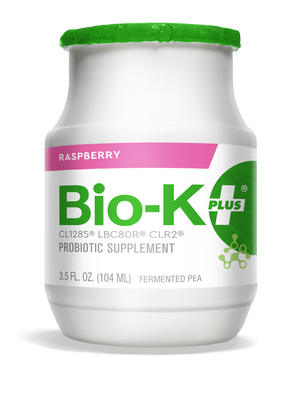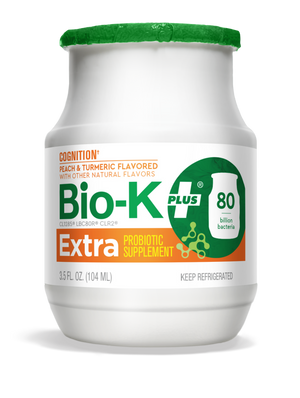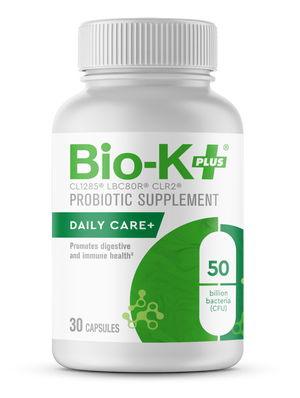What Does the Immune System Do
Immune System Function: What Does the Immune System Do?
Each and every day as you rush between work and the gym, board buses and cross crowded city streets, your immune system is quietly working in the background. Through the hustle and bustle of daily life, your immune system is behind the scenes fighting off invading forces and keeping you feeling happy and healthy.
We don’t put much thought into our immune system until we catch a cold and miserably remember the luxury of being able to breathe out of our noses. If you’re hoping to be more proactive about your health, you’re in luck—read on for a complete guide to the answer “what does the immune system do?” including how it works, its components, what affects it, and how to care for it.
How Does the Immune System Work?

Think of your immune system as your personal superhero, working overtime to protect your body from anything it deems as harmful such as germs or even cellular changes. Actually, think of the immune system like your own personal superhero squad. It’s comprised of:
- White blood cells (leucocytes, monocytes and dendritic cells)
- Lymphocytes (including B and T cells)
- Lymphoid organs (like the thymus and bone marrow)
Each of these components works together to protect your body against potential threats. Your immune system works behind the scenes, 24/7 to keep you healthy. When it clocks in to work, it has three main jobs:
- Identify, battle and eliminate pathogens (known colloquially as germs) such as bacteria, viruses, parasites, and fungi that cause disease.
- Identify and neutralize harmful environmental substances that have a harmful effect on the body.
- Find and eliminate cells with mutations (commonly known as cancer cells).
Your immune system needs to know when to fight and when to rest. As a result, it’s able to distinguish between innocuous and harmful substances. Antigens are molecules that trigger a response from the immune system. This response leads to antibody generation. There are 3 types of antigens:
- External antigens; they come from pathogens like bacteria, viruses and parasites and can cause a disease
- Auto-antigens; they are healthy cells from a person’s organs that trigger an immune response, this is more rarely seen
- Cancer cell antigens; they are found within the body and can lead to harsh consequences on the body
When these foreign entities enter your body, they are detected by your immune cells.
These cells have special receptors that recognize the invading antigen. Once they recognize an antigen, they activate the immune system, initiating a chain of internal reactions (the immune response) to protect you.
Your immune system has a good memory when it comes to recognizing an invading pathogen. Once it meets an enemy, it remembers that germ, and what it needs to do to defeat it. This is the process of creating antibodies. So if you catch a virus, the next time you come across that same virus, your body will remember it and be able to fight it more quickly and effectively, sometimes preventing you from being sick at all! That’s why there are diseases such as chickenpox that you only catch in childhood and then not again as an adult.
Let’s continue our journey through the immune system by looking further into its two subsystems:
- The innate immune system
- The adaptive immune system
These two systems work together to control the immune response.
Innate Immune System
The innate immune system is also known as the non-specific immune system because it's your body's first line of defense.The cells involved in your innate immune system act quickly to destroy any unwanted pathogens that enter the body. The main cells working in this system are::
- Leucocytes, they travel quickly via the blood to the site of an infection and kill pathogens. They are also responsible for alerting other cells of a possible infection.
- Natural killer cells, they can detect and destroy pathogens and cancer cells
Adaptive Immune System
The adaptive immune system is also known as the specific immune system because its role is to create antibodies (AKA kryptonite) for germs that your body has encountered previously.
Your adaptive immune system is a lifelong learner, so it’s constantly adapting to fight bacteria and viruses as they mutate.
Components of the Immune System
Now that you understand better how the immune system works, let’s meet the full slate of your immune system super squad.
Bone Marrow
The center of your bones is a spongy material known as bone marrow. Your bone marrow houses the all-important stem cells that help make billions of new blood cells every day. These include all of the different white blood cells that your immune system needs to function.
Lymph Nodes
Your lymph nodes are part of your body’s lymphatic system. There are hundreds throughout your body including in your neck, armpits, and groin. They are the site of action where the innate and adaptive immune cells meet to develop your immune memory.When your lymph nodes are swollen or tender, it’s usually a sign that your immune system is hard at work preventing illness.
Mucous Membranes
There are mucous membranes throughout your body, including in your respiratory, reproductive, digestive, and urinary tracts. In your respiratory tract, germs get stuck to the mucus and then are moved away by hair-like cilia. These mucus membranes also contain enzymes, as do sweat, tears, saliva, and other bodily secretions, that can wipe out germs.
Skin
Your skin is the outer protective layer of your body and can prevent germs from ever entering it.
Spleen
Your spleen is the main filter for pathogens that can be found in the blood. It contains a large quantity of white blood cells that are able to fight off and destroy circulating germs.
Stomach and intestines
The acid in your stomach quickly destroys bad bacteria that make their way down your gut. Also, your intestines are home to a lot of bacteria that can prevent the growth of harmful bacteria that enter your body and end up there.
That’s why probiotics like Bio-K+® are so important to our diet—they can help encourage high levels of important bacteria that help support a healthy gastro-intestinal health.
Thymus
Your thymus is an often forgotten but important organ beneath the breast bone. It helps to develop the T cells that are in part responsible for creating the immune memory. These are the essential white blood cells that remember past bacteria or viruses so that the immune system can defeat them more quickly and effectively next time.
White Blood Cells
Think of your white blood cells as both sentry and warrior. They spend their days searching for foreign substances and subsequently destroying them. There are multiple types of white blood cells, and each has its own specific duty within the ranks of your immune system.
What Can Affect the Immune System?
Unfortunately, your immune system isn’t always the employee of the month. Usually, your immune system can recognize the proteins on the surface of your body’s cells and know they aren’t foreign or harmful. However, your body can sometimes mistake your own cells for foreign cells and attack them, resulting in an autoimmune response.
There are multiple autoimmune conditions that can be separated into two categories:
- Organ-specific – These are autoimmune diseases restricted to certain organs.
- Systemic – These are autoimmune diseases that affect tissues throughout the body.
Common organ-specific autoimmune conditions include:
- Hashimoto’s thyroiditis
- Graves’ disease
- Type I Diabetes
- Crohn’s disease
Common systemic autoimmune conditions include:
- Lupus
- Rheumatoid Arthritis
There are also specific immunodeficiency disorders. These inherited conditions limit the actions of the immune system. Acquired conditions include certain cancers (such as leukemia and lymphoma), infections (such as HIV and mono), and sepsis.
Luckily, those conditions are rarer. There are two common categories, however, that can affect immune function:
Being aware of all of these factors that can potentially affect your immune system can help you stay on top of your health now and ensure you stay healthy in the future.
Care for Your Immune System with Bio-K®

Your immune system supports you each and every day, so now it’s time to give it a little love back. The new Bio-K+ Extra Drinkable Probiotic Immune Health with Wellmune® is designed to help you take your health to the next level. Optimize your health when you treat both your internal and external self with gentle and loving kindness. A whole new level of happiness and healthiness awaits with our probiotic products.
Sources:
Janeway CA Jr, Travers P, Walport M, et al. Immunobiology: The Immune System in Health and Disease. 5th edition. New York: Garland science; 2001. The Components of the Immune system.
https://www.ncbi.nlm.nih.gov/books/NBK27092/.
National Center for Biotechnology Information. (2020, April 23) How does the immune system work? U.S. National Library of Medicine. https://www.ncbi.nlm.nih.gov/books/NBK279364/.
Brownlee, J. (2007). Antigen-antibody interaction. Melbourne, Australia: Complex Intelligent Systems Laboratory, Centre for Information Technology Research, Faculty of Information and Communication Technologies, Swinburne University of Technology. https://businessdocbox.com/Biotech_and_Biomedical/69960235-Antigen-antibody-interaction.html
Parkin, J., & Cohen, B. (2001). An overview of the immune system. The Lancet, 357(9270), 1777-1789.https://pubmed.ncbi.nlm.nih.gov/11403834/
National Center for Biotechnology Information. (2020, April 23) How does the immune system work? U.S. National Library of Medicine. https://www.ncbi.nlm.nih.gov/books/NBK279364/.
Parkin, J., & Cohen, B. (2001). An overview of the immune system. The Lancet, 357(9270), 1777-1789. https://businessdocbox.com/Biotech_and_Biomedical/69960235-Antigen-antibody-interaction.html
Cleveland Clinic. (2020, February 23). Immune System. Cleveland Clinic. https://my.clevelandclinic.org/health/articles/21196-immune-system.
Bartoszewski, R., Matalon, S., & Collawn, J. F. (2017). Ion channels of the lung and their role in disease pathogenesis. American journal of physiology. Lung cellular and molecular physiology, 313(5), L859–L872. https://doi.org/10.1152/ajplung.00285.2017
Bronte, V., & Pittet, M. J. (2013). The spleen in local and systemic regulation of immunity. Immunity, 39(5), 806–818. https://doi.org/10.1016/j.immuni.2013.10.010
Geenen V. (2021). The thymus and the science of self. Seminars in immunopathology, 43(1), 5–14.The thymus and the science of self | Seminars in Immunopathology (springer.com)
National Center for Biotechnology Information. (2020, April 23) How does the immune system work? U.S. National Library of Medicine. https://www.ncbi.nlm.nih.gov/books/NBK279364/.
Janeway CA Jr, Travers P, Walport M, et al. (2001). Autoimmune responses are directed against self antigens. Immunobiology: The Immune System in Health and Disease, 5. https://www.ncbi.nlm.nih.gov/books/NBK27155/





